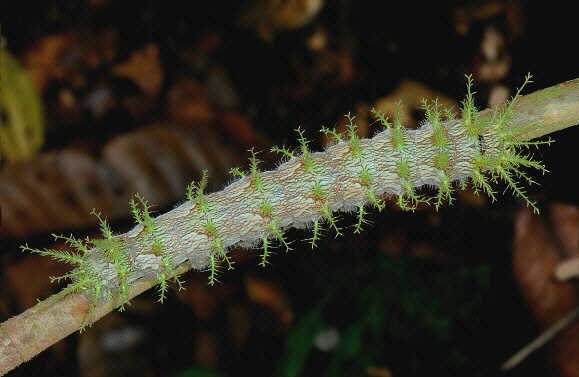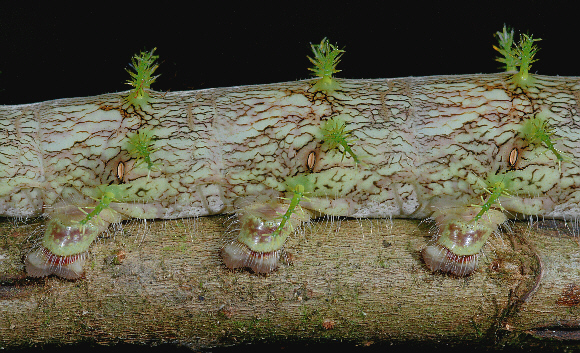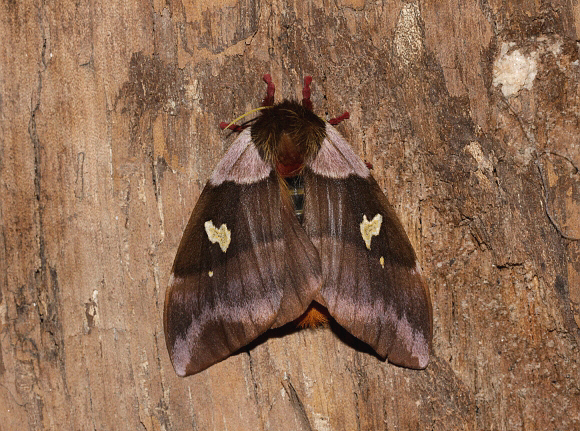
Introduction
There are 42 species in the genus Dirphiopsis, variously distributed from Mexico to Bolivia. In Peru, where this caterpillar was photographed, there are 10 recorded species: andicola, thiaucourti, biremis, eumedidoides, niceros, peruviana, undulata, uniformis, trisignata, and varia.
Habitats
This larva was found in primary rainforest at an altitude of about 400m.
Lifecycle
The huge caterpillar measures over 14 cms in length when fully grown. It bears a quite remarkable resemblance to a lichen-covered stick, but unlike the harmless lichen that it seeks to mimic, this caterpillar is quite dangerous to touch. The branched spines on its back and sides are capable of delivering a painful sting and can produce a severe skin rash.
Dirphiopsis, Dirphia, and Cerodirphia are very closely allied to Lonomia, a genus whose caterpillars can be found clustered in groups of up to 100 on the trunks of trees in Amazonia. There have been hundreds of incidents where people have touched or unwittingly rubbed against groups of them. The effects of a dose from multiple larvae can be extremely dangerous, including massive intercranial hemorrhaging and kidney failure. Lonomia obliqua caterpillars are a frequent cause of death in southern Brazil – 354 people died between 1989 and 2005. The fatality rate is about 1.7% – roughly equivalent to that of rattlesnake bites.

Adult
Dirphiopsis moths are cryptically patterned to resemble dead leaves. Their wings are patterned in shades of brown, and often have dark veins and a dark-edged white median line on the forewings. In several species, there is also a whitish zigzag mark at the end of the discal cell. The abdomen of most species is furry, and yellowish-orange or chestnut in color.

